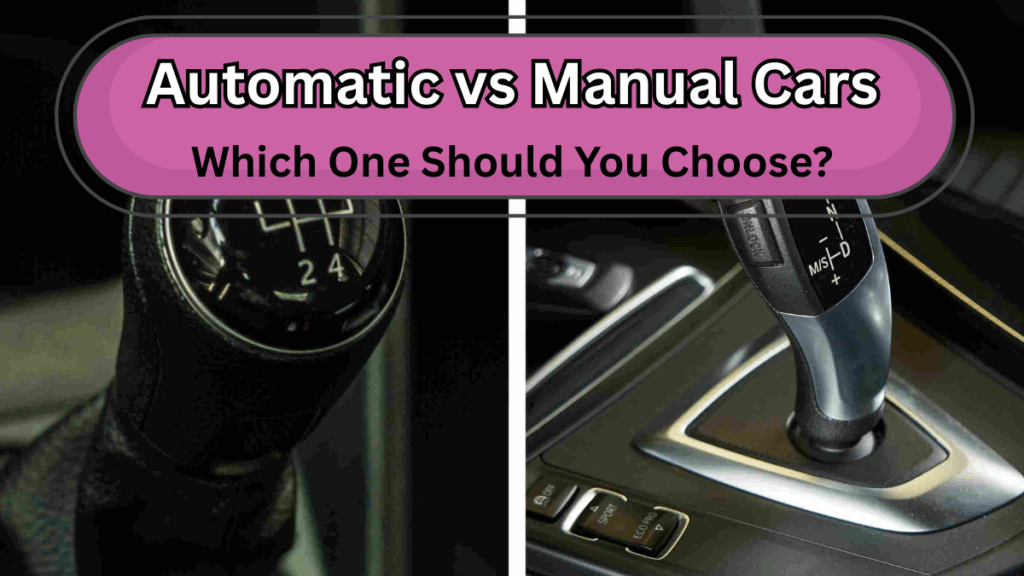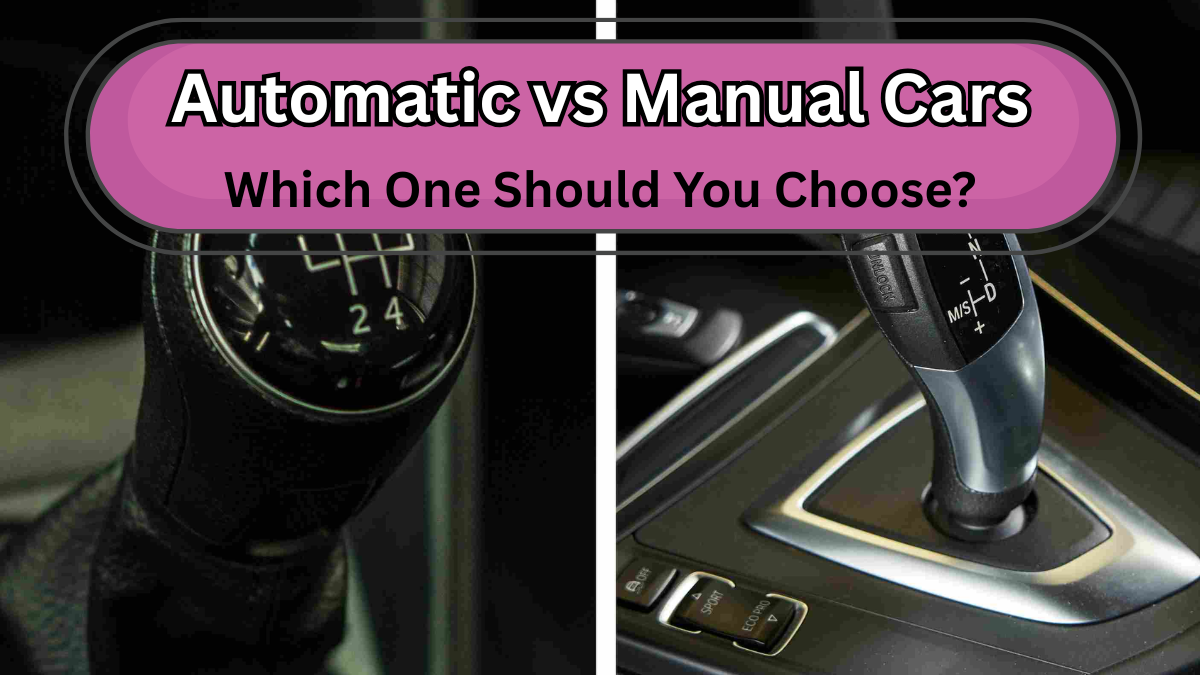Choosing between an automatic and a manual car can feel like standing at a crossroads. Whether you’re a first-time buyer or looking to upgrade, understanding the automatic vs manual cars pros and cons is essential to make a confident decision.
Both transmission types have loyal fans—and for good reason. But which one is the better fit for your lifestyle, driving habits, and budget?
Let’s explore the key differences, along with a clear transmission comparison, to help you find the perfect match for your driver experience.

Understanding the Basics: What Sets Them Apart?
Before diving into the pros and cons, let’s break down how each transmission type works:
| Feature | Manual Transmission | Automatic Transmission |
|---|---|---|
| Gear Changes | Driver manually shifts gears using a clutch | Car shifts gears automatically |
| Learning Curve | Steeper, requires coordination | Easier, especially for new drivers |
| Fuel Efficiency | Typically more fuel-efficient | Slightly less efficient (improving with tech) |
| Maintenance Costs | Lower in the long run | Higher, due to complex components |
Automatic vs Manual Cars Pros and Cons
Here’s a quick look at the automatic vs manual cars pros and cons to help you weigh your options:
Pros of Manual Cars
-
Greater control over the vehicle
-
Often cheaper to buy and maintain
-
Better fuel economy in some models
-
Ideal for those who enjoy an engaged driving experience
Cons of Manual Cars
-
Challenging in stop-and-go traffic
-
Steeper learning curve for beginners
-
Can be tiring on long city commutes
Pros of Automatic Cars
-
Super easy to drive—especially in traffic
-
Great for beginners and urban drivers
-
Smoother, more relaxed driving experience
Cons of Automatic Cars
-
Typically more expensive upfront
-
Repairs and maintenance can cost more
-
Slightly lower fuel economy (though modern autos are closing the gap)
Driver Experience: Which One Feels Better?
When it comes to driver experience, your personal preference plays a huge role. Here’s how each transmission compares:
Manual
-
Best for people who love being in control of the ride
-
Adds a sense of connection between car and driver
-
Preferred by driving enthusiasts or those who enjoy performance driving
Automatic
-
Perfect for daily commuters and city dwellers
-
Reduces fatigue on long drives and in heavy traffic
-
Offers a seamless, stress-free driving experience
This transmission comparison makes it clear: your lifestyle and comfort level matter most.
So, Which Should You Choose?
Ask yourself the following questions:
-
Do I drive mostly in the city or on highways?
-
Am I comfortable with learning a manual gearbox?
-
Is budget or convenience more important to me?
Choose a manual car if:
-
You’re a driving enthusiast
-
You want to save on purchase and fuel
-
You don’t mind a bit of a learning curve
Choose an automatic car if:
-
You want convenience and ease of use
-
You often drive in heavy traffic
-
You’re looking for a hassle-free drive
Final Thoughts
When considering automatic vs manual cars pros and cons, there’s no one-size-fits-all answer. It all boils down to your comfort, driving environment, and what you expect from your vehicle. Use this transmission comparison as a roadmap, and let your personal preferences steer the wheel.
Frequently Asked Questions (FAQs)
1. Is it harder to learn to drive a manual car?
Yes, manual cars have a steeper learning curve because they require you to coordinate the clutch and gear shifts. But with practice, it becomes second nature.
2. Are automatic cars more expensive to maintain?
Generally, yes. Automatic transmissions are more complex and can be pricier to repair. However, they require less frequent maintenance compared to manuals.
3. Which type of transmission is better for city driving?
Automatic transmissions are ideal for city driving due to their ease and comfort in stop-and-go traffic.
4. Do manual cars offer better fuel efficiency?
In many cases, yes. Manual cars tend to offer better fuel economy, although advancements in automatic technology are bridging the gap quickly.
Click here to learn more
